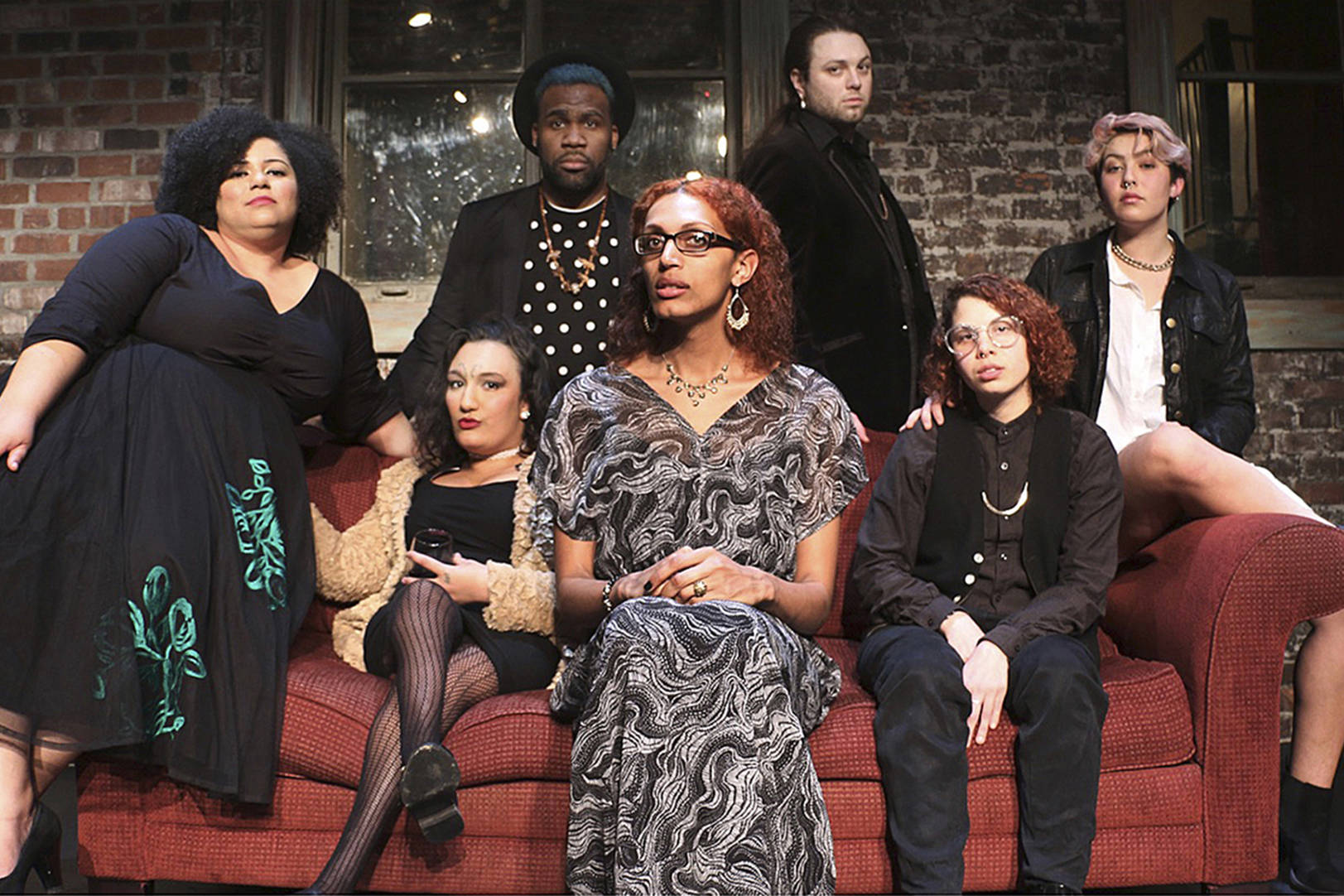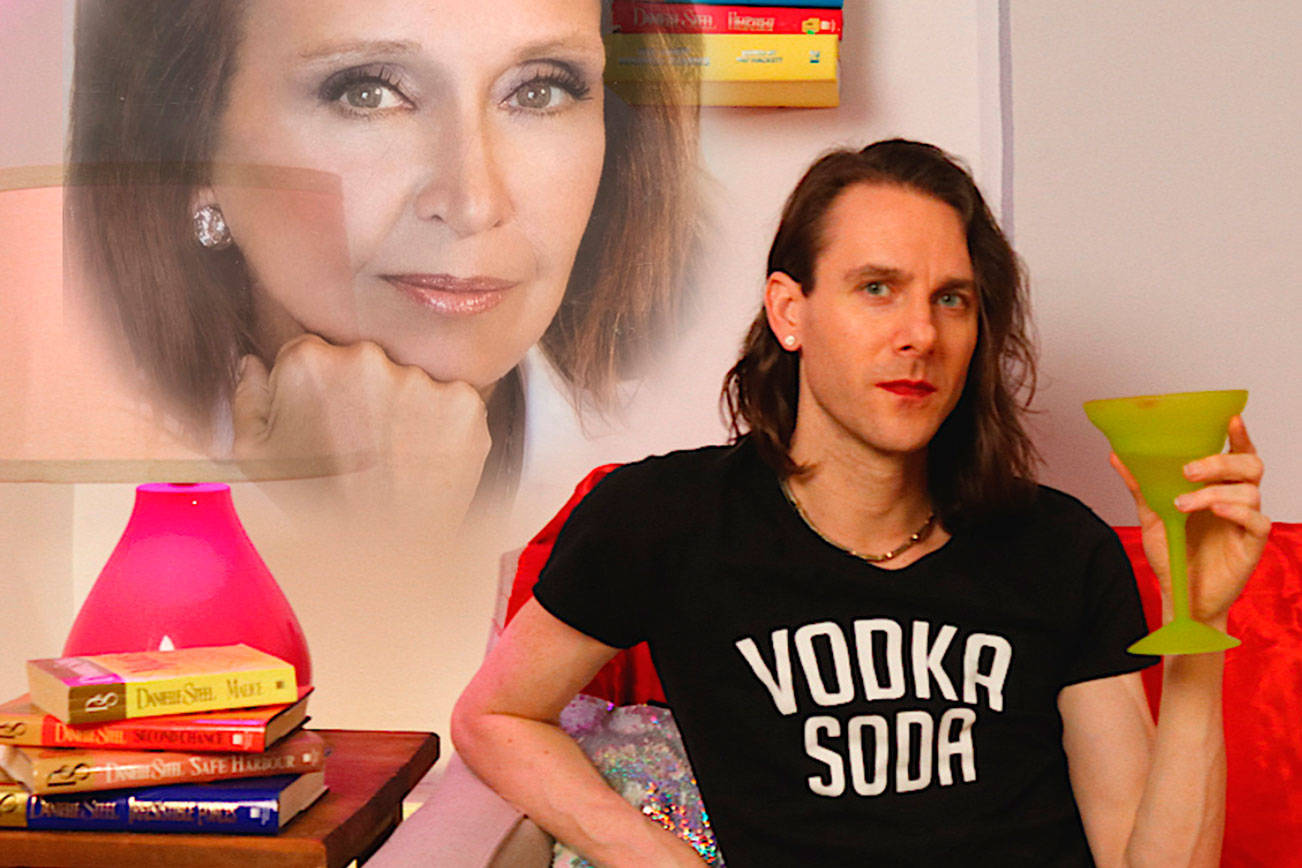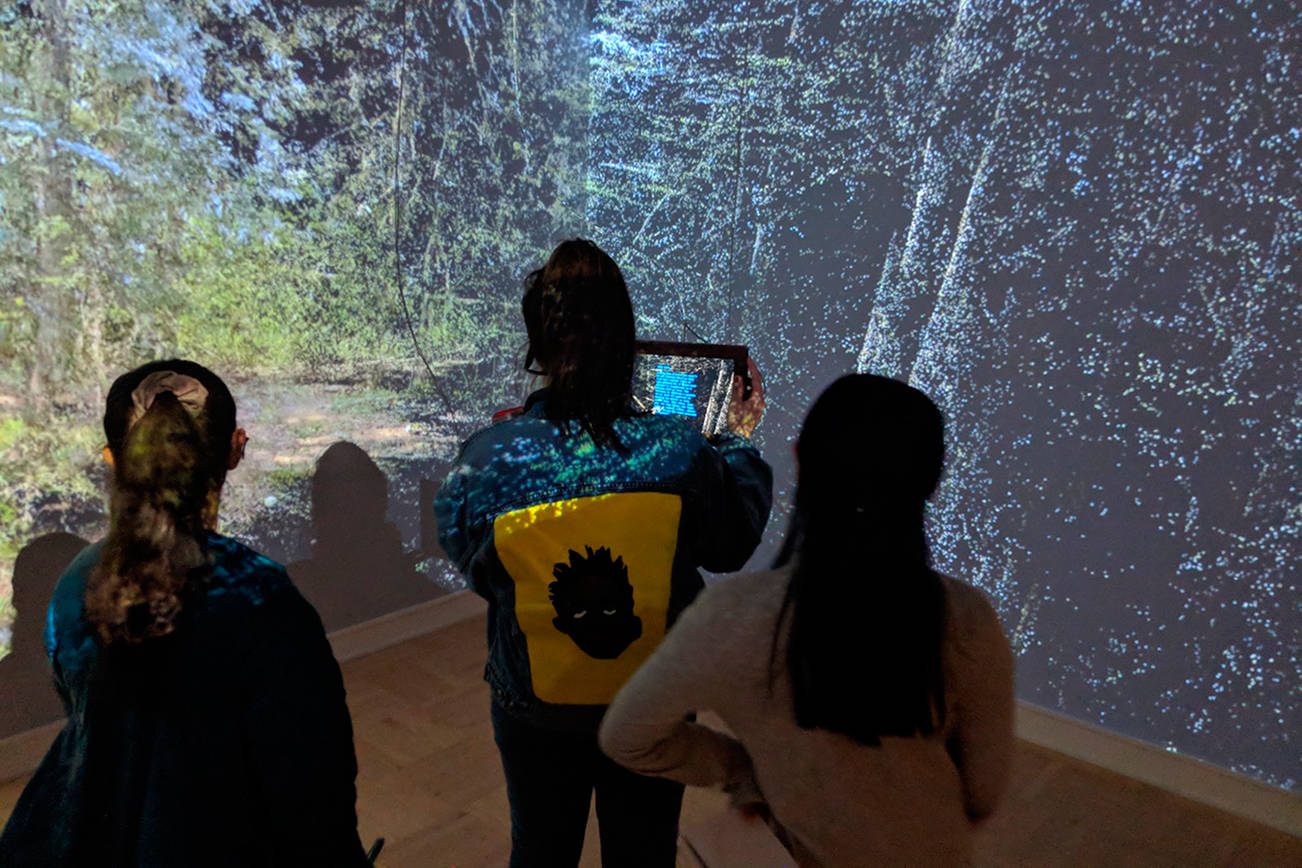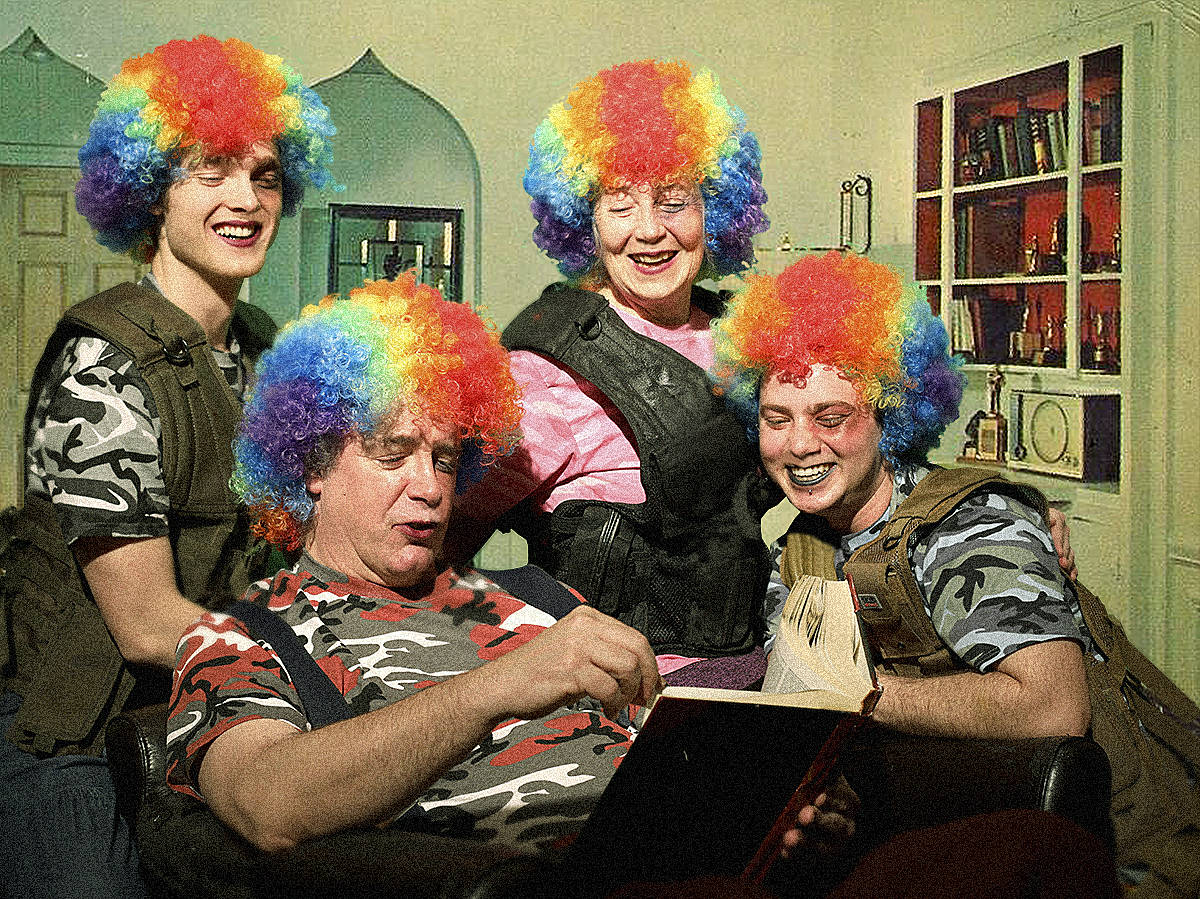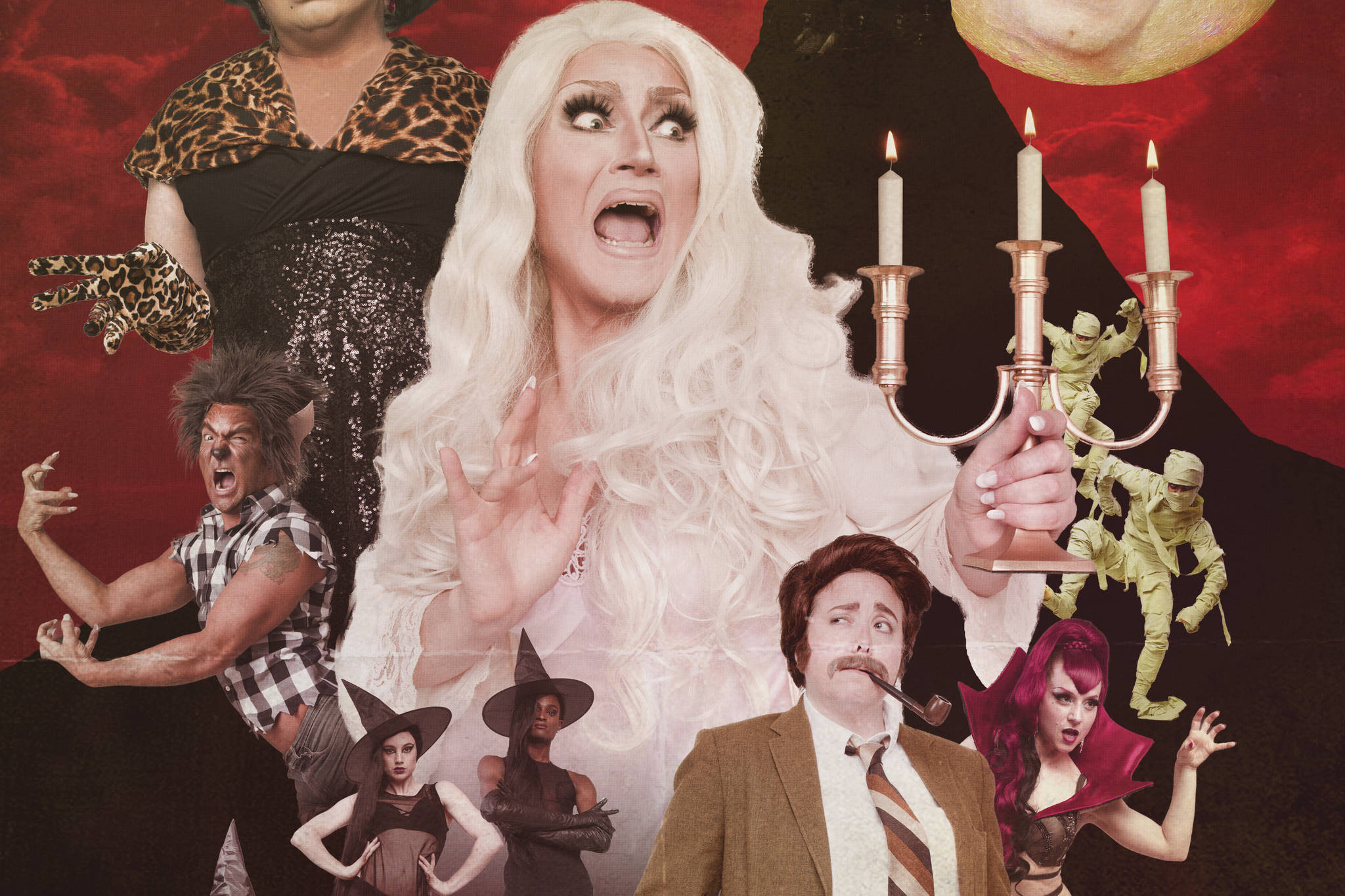“I’ve always been told that the stage is like your business with God,” poet and community organizer Ebo Barton says. It’s a mantra Barton picked up from their mentor and friend Tara Hardy, speaking to the power of transparency and healing onstage. That potential for transformation is central to the making of Rising Up: A Queer Social Justice Play, co-written by Barton and Sarah Rosenblatt, with heavy input from the cast as well. Directed by Barton and Neve Andromeda Mazique-Bianco, Rising Up follows the stories of love, transition, and resistance experienced by queer and trans people of color in Seattle. “To build this stage and be able to tell our stories and have characters that represent people [we] know is my version of resistance,” Barton says.
The stage is home for Barton, but not necessarily the theater stage. Their central form of artistic expression is poetry, where they’ve been involved in spoken word for 10 years. Over that time they’ve performed at Seattle Poetry Slam and Rain City Slam and at national and international competitions. In October 2016 they went to the Individual World Poetry Slam, competed against 96 other poets, and placed fifth in the world. Although most of their time is dedicated to poetry and activism, “I’ve always been a secret theater kid,” Barton says.
Barton’s talent in sculpting metaphors and lyrical language is complemented by the work of Rosenblatt, who acted as a youth and brought to this project a knack for writing realistic dialogue. The two are close friends, and Rising Up is in many ways a product of that: “We wrote this play sitting on each other’s beds,” Barton says. The Enchanted Life and Temporary Death of Sadie December, a one-woman multimedia production by Dorothy Kent about her transition, sparked the idea for Rising Up. Barton was inspired by Kent’s “building of a world,” and began having conversations with Rosenblatt about it. “We were able to have real discussions that you wouldn’t be able to have with someone that was just a collaborator,” Barton says, “discussions about gender and race and how we are perceived in community, and how to show up to that.” Many of the characters and conversations in the play were inspired by Rosenblatt’s and Barton’s own lives and experiences.
Rising Up centers around queer community—specifically queer and trans people of color, femmes, people with disabilities, and working-class people. The play follows the relationships and stories of QTPOC living in a “disability-justice-informed, antiracist, feminist co-op” in the Central District. The narrative chiefly focuses on “The Main Character,” played by Scarlett D’Giacomo, a black trans woman who has exited a failing relationship and finds housing at the queer co-op. Rising Up is a reflection on the community she finds there, seen through interactions among roommates.
Once rehearsals began, the cast had a chance to incorporate their own QTPOC experiences into the script. The characters were originally developed by Barton and Rosenblatt, but edited, based on the attentive collaboration of Barton, Mazique-Bianco, and the performers, to blend the actors’ fact with the play’s fiction. Conversations about various intersections of identity helped shape the process. “As an actor I feel like they have been really generous in letting us infuse the characters with what feels authentic for us, even down to letting us add things or take things out of lines that don’t feel right to us in character,” says Modessa Jacobs, who plays Nadia. The result, Jacobs says, is “an authentic portrayal of what queer lives look like, as opposed to an overly dramatized or tokenized portrayal of queer community.” These intersections show up in numerous ways throughout the story—through characters involved in sex work, or those with a history of living in specific Seattle neighborhoods. “Yes, we are queer, but also we might be disabled, we might be anxious … we are also femme or masculine … within the story we have to consider these things,” says Barton.
Rising Up’s scope touches on the personal but on systemic issues as well, one of which is the “way we tell the story about displacement,” Barton says. “What I wanted was for [the] queer community to take a look at ourselves in this, because that’s where we change, where revolution comes from.” Within the play, that displacement narrative emerges from the closing of a fictional Seattle QTPOC art space, The Pearl. Each character has a relationship to The Pearl and is deeply impacted by its disappearance. “Seattle doesn’t care about queer and trans people anymore, especially black and brown queer people,” says Heathcliff, played by Garfield Hillson, reflecting on the closing of such an important space.
“As queer people and people of color we face displacement and betrayal and abandonment, and it comes from all different places, and there is not a lot of space for us to fully express this experience, and I think that Rising Up really tells those stories well,” says D’Giacomo. The cast and crew’s collaborative work blending real experiences with fictional representations of community results in a truly transformative and dynamic production. Reflecting on working on Rising Up, Barton says their favorite part is “watching the cast explore these different personalities and making them come to life in their own special way. It proves to me that Sarah and I created people that exist in this world and needed to come to life.” Rising Up: A Queer Social Justice Play, Gay City, 517 E. Pike St., gaycity.org. $12–$20. All ages. Ends Sun., May 21.
stage@seattleweekly.com
